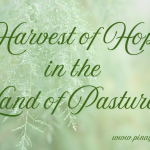Joel had grown up surrounded by the lush green fields of Nueva Ecija, the rice granary of the Philippines. Farming was in his blood his father tilled the land, his grandfather planted rice long before him, and Joel’s earliest memories were of chasing carabaos at dawn. But as the years passed, Joel saw how farming in their hometown became harder. Typhoons destroyed crops, market prices were unstable, and expenses kept rising.
So when an agency announced openings for seasonal farm workers in Australia, Joel didn’t hesitate. It meant leaving his wife and two small children, but it also meant the possibility of a steady income, better savings, and maybe even buying his own farmland someday.
His first glimpse of the vast Australian fields left him in awe. Instead of small, hand-tended plots, he saw rolling acres of wheat, corn, and grapes stretching as far as his eyes could see. Here, farming was a high-tech industry tractors were computer-guided, irrigation was automated, and harvest schedules were monitored with precision. Joel knew he had a lot to learn.
The work was physically demanding. His days often began before sunrise, starting with checking irrigation lines, clearing weeds, and inspecting crops for pests. During harvest season, he worked 10 to 12 hours, operating machinery he had never seen before back in the Philippines. The heat was different too dry and intense and he quickly learned the importance of wearing sunscreen and drinking water constantly.
Language wasn’t much of a problem since most instructions were given in English, but Joel still struggled with Australian slang at first. His co-workers, a mix of locals and fellow migrants, were patient with him. He became good friends with Ahmed, a farmer from Egypt, who taught him tricks for faster fruit picking without damaging produce.
Joel’s favorite part of the job was working in the vineyard. There was something peaceful about walking between rows of grapevines, carefully pruning leaves to help the fruit grow better. The scent of ripe grapes under the warm sun reminded him of home different crops, but the same connection to the land.
There were challenges too. The long hours sometimes left him with aching muscles, and he missed family events birthdays, school plays, Sunday dinners. Video calls helped, but there were moments when seeing his children only on a screen made him feel the weight of his sacrifice.
After two years, Joel had saved enough to pay off his family’s debts and lease a few hectares of farmland back home. He also started sending seeds, tools, and learning materials to his brother in the Philippines, teaching him new techniques he had learned abroad, such as drip irrigation and crop rotation schedules.
When his contract ended, Joel faced a choice renew and continue earning abroad or return home to rebuild his own farm. In the end, he chose to come home. He knew he could make a decent living applying what he had learned and wanted to be there as his children grew up.
Back in Nueva Ecija, Joel’s fields began to flourish in ways he had only dreamed of before. He introduced higher-yield crops, used modern irrigation, and shared his knowledge with neighboring farmers. His time abroad had not just him financial stability; it had given him a vision.
Joel realized that no matter where he worked under the Australian sun or the Philippine rain farming wasn’t just a livelihood. It was his life’s calling. And in sowing seeds in foreign soil, he had also sown the seeds of a better future for his family and community.



